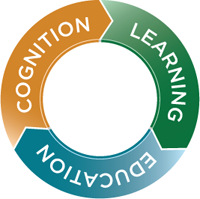
Chapter 10: Some Cognitive Issues in Engineering Design
Editors
Mark A. McDaniel, Regina F. Frey, Susan M. Fitzpatrick, & Henry L. Roediger III
Files
Link to PDF Full Text
Description
Design is an important outcome in the engineering curricula and profession. Design courses may first appear to students as freshman or late as seniors depending on universities. With the goals to solve the design process, enhance teamwork, and enhancing communication within and between the team and client, design is integrative, requiring students to engage in a more holistic kind of thinking and resourcefulness. Students are familiar with the domain and the logical progression in textbooks from concept to concept, but the design problem is often not well formulated requiring students to formulate both the problem and consideration before working toward a solution. Teaching design can also be difficult as it requires moving students out of their comfort zone into self-directed and independent world of design. Mathematical modeling is an important aspect of design, and scaffolding appears to be helpful in improving students' abilities to generate and use mathematical models in biomedical engineering senior design. A study of student capabilities followed by a classroom intervention in biomedical engineering design is discussed.
Document Type
Chapter
ISBN
978-1-941823-00-2 (MOBI), 978-1-941823-01-9 (ePub), 978-1-941823-02-6 (PDF)
Publication Date
9-10-2014
Publisher
Washington University Libraries
City
Saint Louis
Disciplines
Cognitive Neuroscience | Cognitive Psychology | Educational Psychology | Engineering | Engineering Education | Higher Education | Higher Education and Teaching | Science and Mathematics Education | Teacher Education and Professional Development
Recommended Citation
Linsenmeier, R.A., Cole, J.C., & Glucksberg, M.R. (2014). Some cognitive issues in engineering design. In M. McDaniel, R. Frey, S. Fitzpatrick, & H.L. Roediger (Eds), Integrating cognitive science with innovative teaching in STEM disciplines [E-reader version] (pp. xxx-xxx). doi: http://dx.doi.org/10.7936/K72Z13FZ




Comments
Chapter 10, Integrating Cognitive Science with Innovative Teaching in STEM Disciplines. Chapter DOI: http://dx.doi.org/10.7936/K72Z13FZ. Link to complete book available at: http://openscholarship.wustl.edu/books/9/ Complete book available for purchase through Amazon and Apple. For information about alternative versions, please contact digital@wumail.wustl.edu. Arranged for publication, sale, and distribution in electronic and print form by Washington University Libraries. All articles Copyright © 2014 by the individual authors.